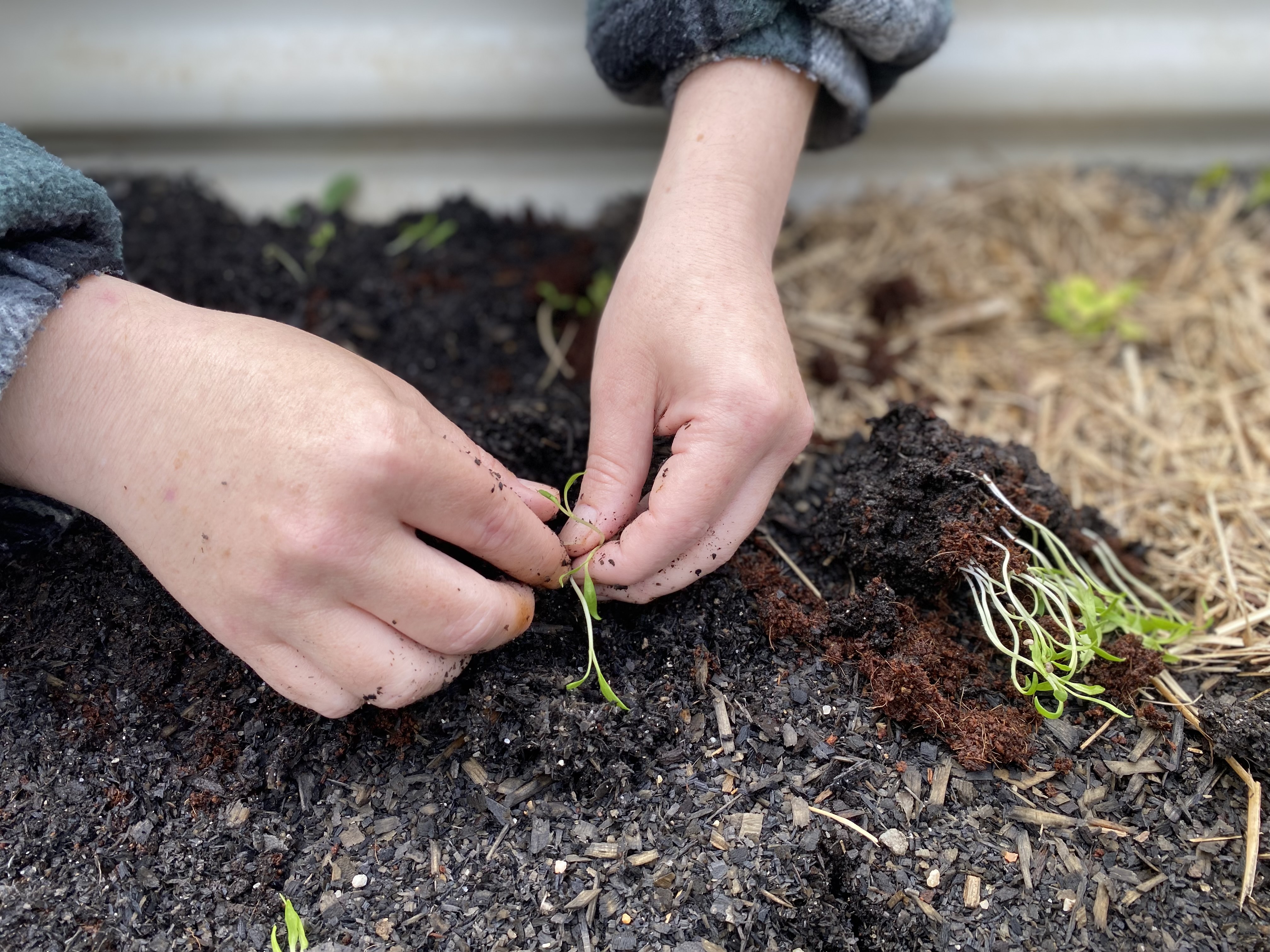Local Circular Solutions for Food Waste
The Hunter Brain Injury Service (HBIS) is supporting the Hunter New England Local Health District’s plan to be carbon and waste neutral by 2030 using the principles of a circular economy to tackle the issue of food waste.
In a circular economy, food waste does not go to landfill. Instead we aim to:
- Prevent food waste by making changes to ordering systems and meal planning processes,
- Reduce food waste by redistributing surplus edible food to people in need; and
- Reusing inedible food waste to regenerate soil that supports local food production.
HBIS has successfully implemented a closed loop patient-led solution to stop food waste from reaching landfill. This model has potential to be scaled and replicated at other community health services across the district.
The Hunter Brain Injury Service (HBIS) is one of 15 specialised Brain Injury Rehabilitation Services in NSW and provides a combination of transitional and community-based rehabilitation to adults aged 16-65. This standalone service has a unique model of care that is focused on community reintegration and social participation. Patients are required to participate in activities of daily living including meal planning, grocery shopping and meal preparation. Additionally, patients are facilitated to maintain healthy levels of physical activity and engage in meaningful social and leisure pursuits.
In 2019, the team at the HBIS established a productive therapy garden and bush tucker yarning circle aiming to:
- Embed patient-led sustainable practice into brain injury rehabilitation
- Create a culturally safe space for patients and their families and recognise the value of Caring for Country on health and wellbeing
- Improve opportunities for incidental physical activity, cognitive stimulation and social interaction
- Optimise nutrition literacy and improve dietary habits
- Offer opportunities for pre-vocational skill development
- Combat poor engagement in centre based indoor therapy programs
The therapy garden and yarning circle were co-designed and built in conjunction with the HBIS multi-disciplinary rehab team, HBIS patients, Royal Botanical Gardens Community Greening Program, Newcastle Men’s Shed and Therapeutic Horticulture Australia.
Since implementation, patients residing in the transitional living unit participate in a weekly garden group that is facilitated by the multi-disciplinary rehab team. Patients prioritise a task list that can include seasonal seed selection, planting, propagating, pruning, soil and pest management and weeding. Patients harvest fresh seasonal produce from the garden and meal planning is centred around these ingredients. Patients deposit food waste from the kitchen into the compost bin and worm farm each day. The compost and worm castings generated from these systems are then fed into the garden beds to optimise conditions for prolific growth and harvesting.
In addition to the weekly garden group, the multi-disciplinary rehab team utilise the therapy garden and yarning circle for 1:1 therapy sessions to target specific functional physical, cognitive or communication activities. This ‘green space’ has also become a safe and relaxing environment for social work and psychology sessions.
To further mitigate food waste, the meal planning process at HBIS was reviewed. Prior to the implementation of the program, all food was procured at a major supermarket. Post implementation, the seasonal harvest from the garden inspires meal planning sessions. A stringent weekly pantry/fridge/freezer audit has also been introduced. Any supplementary grocery items are then procured from the supermarket. This system has reduced food costs and minimised food spoilage due to over-purchasing.
In 2022, Hunter Brain Injury Service (HBIS) partnered with Go Circular to quantify the success of the program. Key findings:
- Onsite composting and worm farming has diverted 120kg of food waste from landfill per year
- Average monthly spend on food has decreased by 49%
Patient outcomes have also been measured. Since the implementation of this program, patients have demonstrated:
- Improved nutrition literacy and enhanced connection to food systems
- Diversified meal preparation skills and higher intake of nutritious unprocessed foods
- Increased incidental physical activity with opportunities to practise functional upper limb, mobility and balance tasks in a real world environment
- Enhanced social connection with peers and improved mood
- Greater opportunities to practise real world cognitive and social communication skills
Encouragingly, 87.5% of patients who participated in the program indicated they are eager to use their new knowledge of sustainable gardening and food preparation upon discharge from the service.
If you have any questions relating to the Local Circular Solutions for Food Waste Project please contact:
Project Partner Go Circular: Annie Jiang at anniej@gocircular.org.au
HNELHD Sustainability Project Officer: Alana Stoeger at Alana.Stoeger@health.nsw.gov.au
If you have any questions relating to the HNELHD Sustainability Strategy or other Sustainability Projects please don’t hesitate to contact:
HNELHD Sustainability Project Team at HNELHD-SustainableHealthcare2030@health.nsw.gov.au

